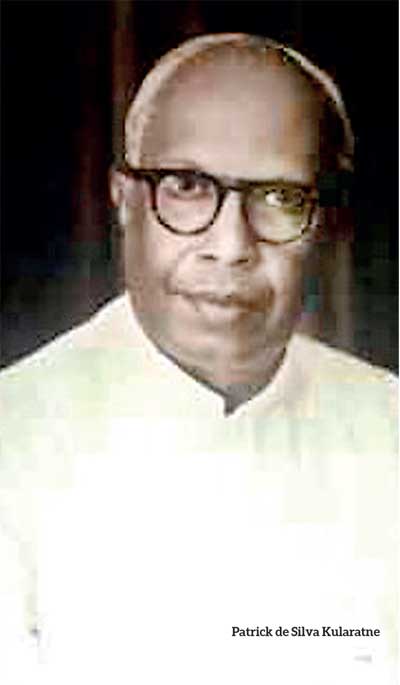Reply To:
Name - Reply Comment
Last Updated : 2024-04-25 14:54:00
 The first comprehensive English biography of this leading educationist will be launched on December 3 at 5.30 p.m. at the Kularatne Hall, Ananda College, Colombo. Illustrious alumni Professor J.B. Disanayaka and Professor Sudharshan Seneviratne will provide their perspectives at the event.
The first comprehensive English biography of this leading educationist will be launched on December 3 at 5.30 p.m. at the Kularatne Hall, Ananda College, Colombo. Illustrious alumni Professor J.B. Disanayaka and Professor Sudharshan Seneviratne will provide their perspectives at the event. the British government and they had been defended by Christian and Hindu community leaders. This solidarity among the different communities led to the formation of a national movement towards independence. In 1917 the Ceylon Reforms Congress (the precursor of the Ceylon National Congress) had been formed with Sir Ponnambalam Arunachalam as president and W.A.de Silva and F.R. Senanayake as secretary and treasurer respectively. (The Ceylon National Congress was subsequently founded in 1919).
the British government and they had been defended by Christian and Hindu community leaders. This solidarity among the different communities led to the formation of a national movement towards independence. In 1917 the Ceylon Reforms Congress (the precursor of the Ceylon National Congress) had been formed with Sir Ponnambalam Arunachalam as president and W.A.de Silva and F.R. Senanayake as secretary and treasurer respectively. (The Ceylon National Congress was subsequently founded in 1919). social and cultural dimension. ..."
social and cultural dimension. ..."
Add comment
Comments will be edited (grammar, spelling and slang) and authorized at the discretion of Daily Mirror online. The website also has the right not to publish selected comments.
Reply To:
Name - Reply Comment
US authorities are currently reviewing the manifest of every cargo aboard MV
On March 26, a couple arriving from Thailand was arrested with 88 live animal
According to villagers from Naula-Moragolla out of 105 families 80 can afford
Is the situation in Sri Lanka so grim that locals harbour hope that they coul